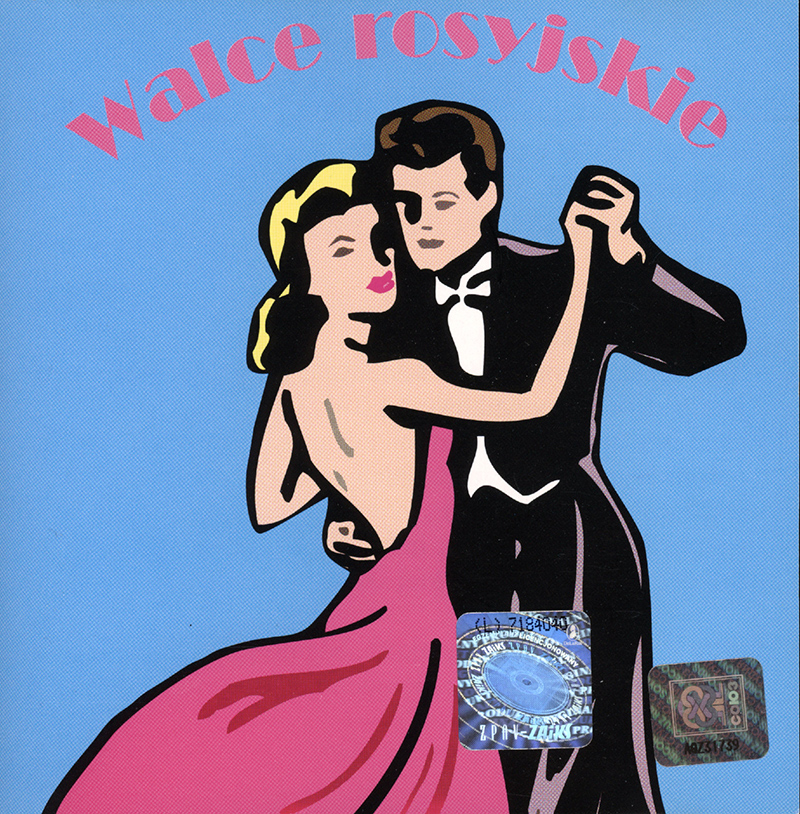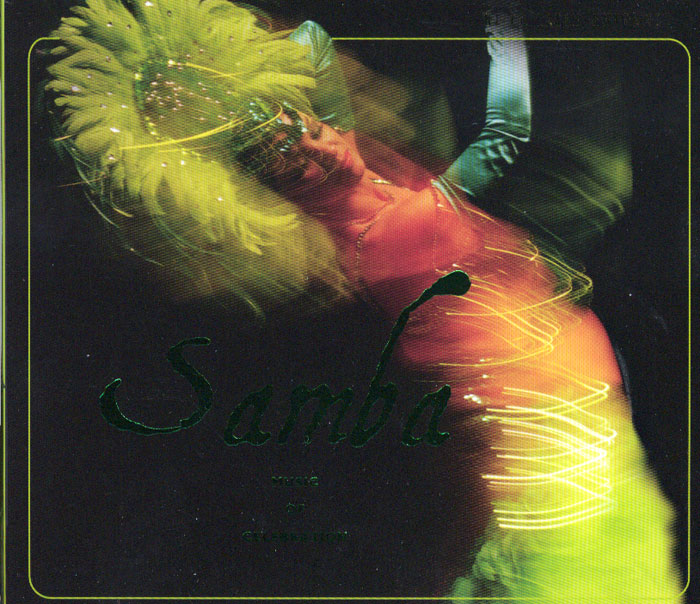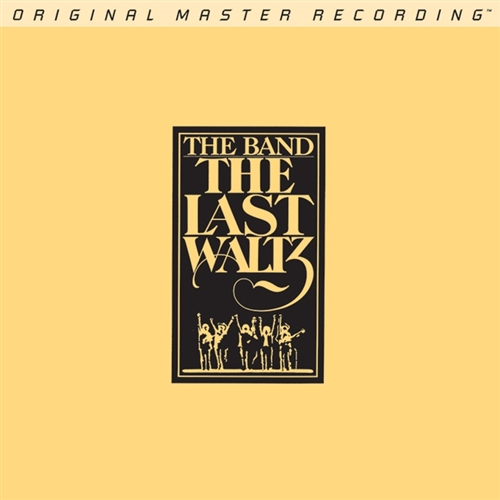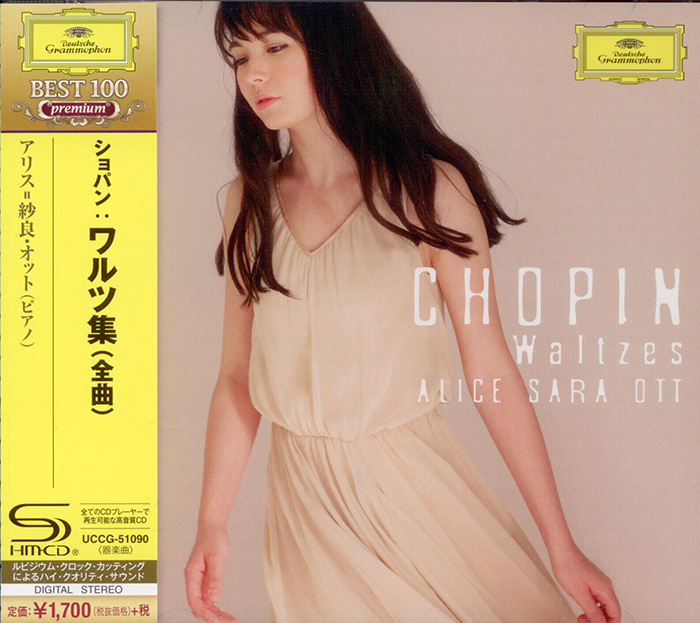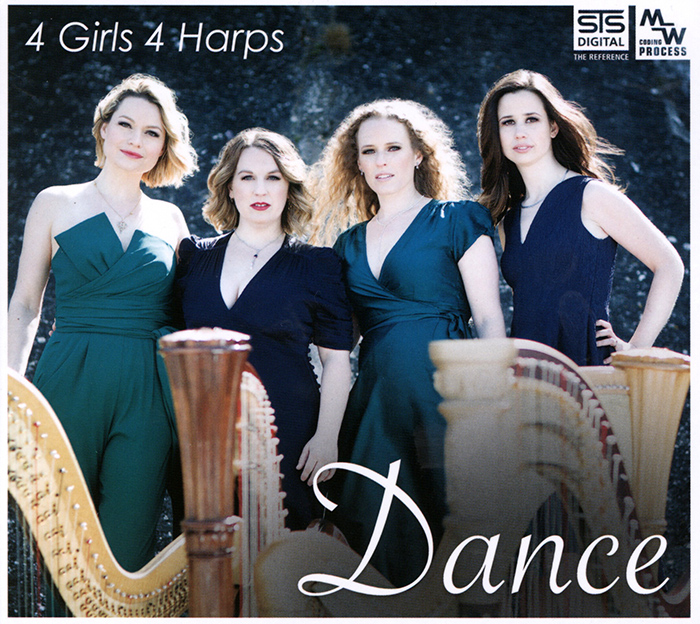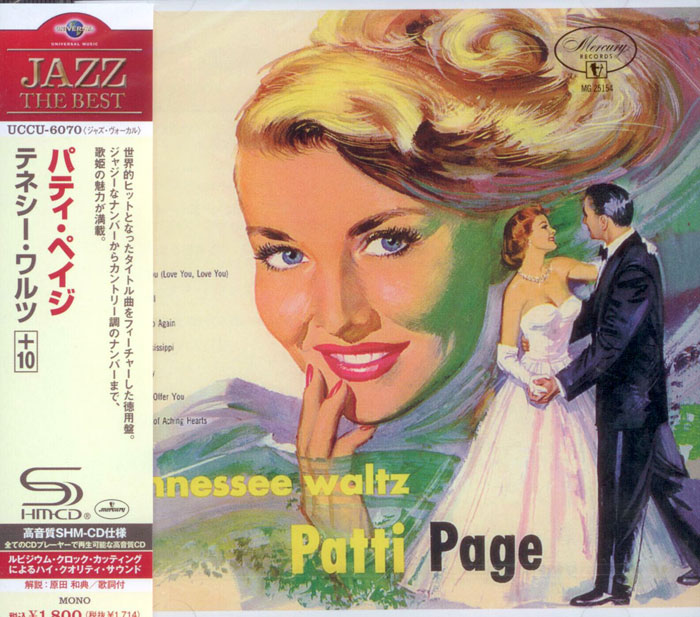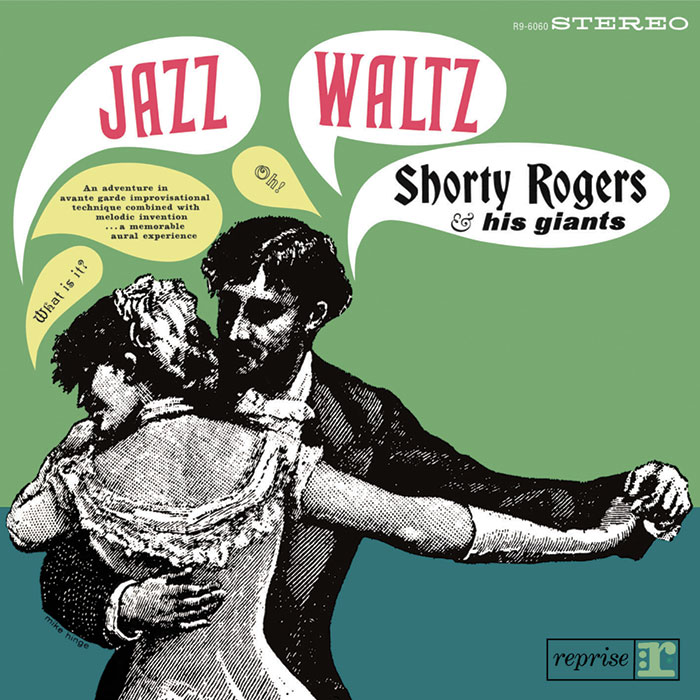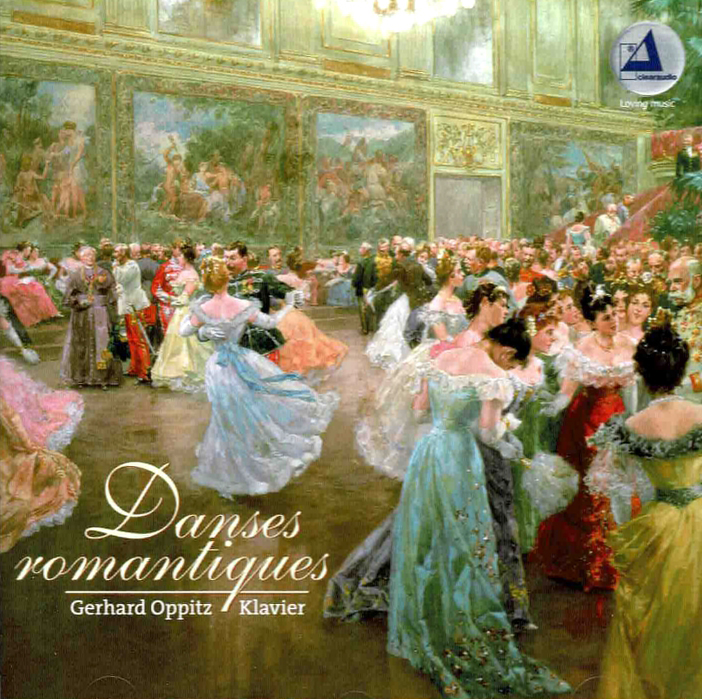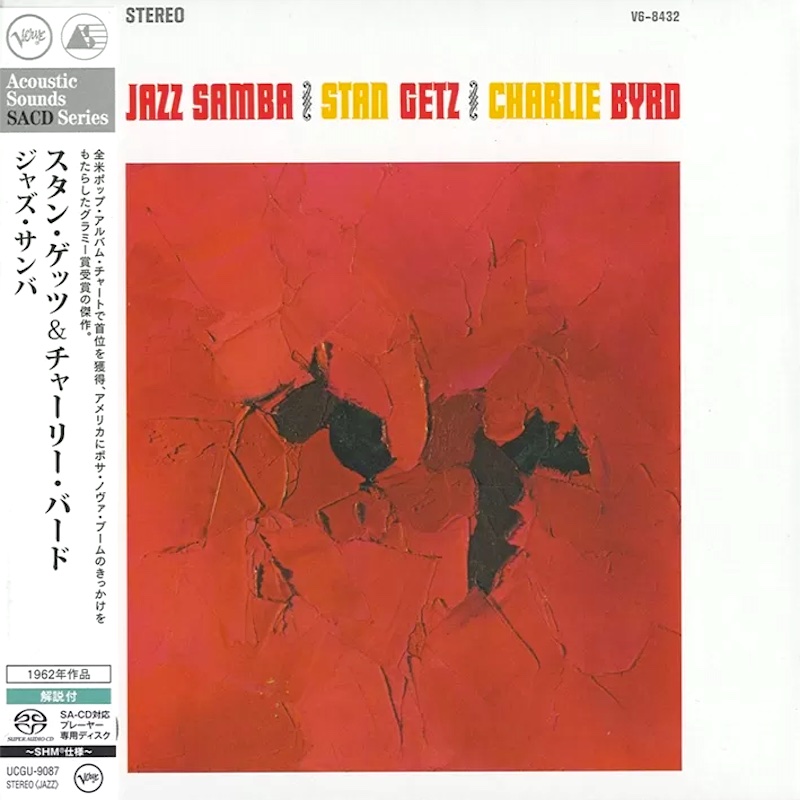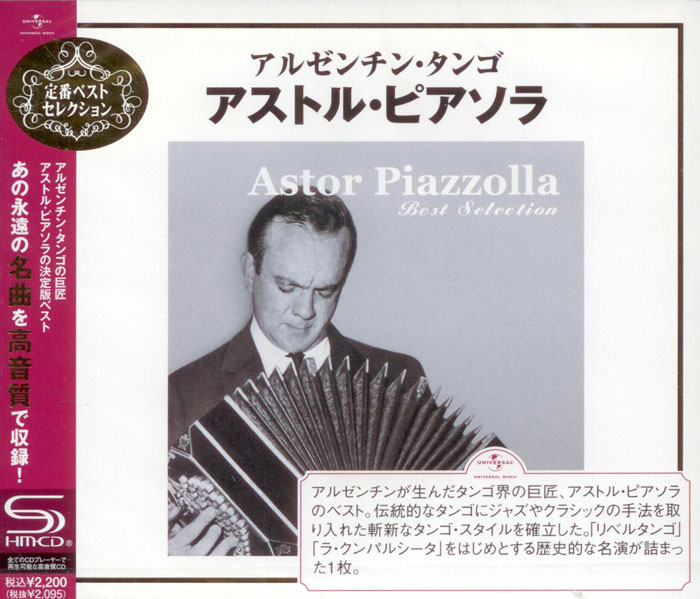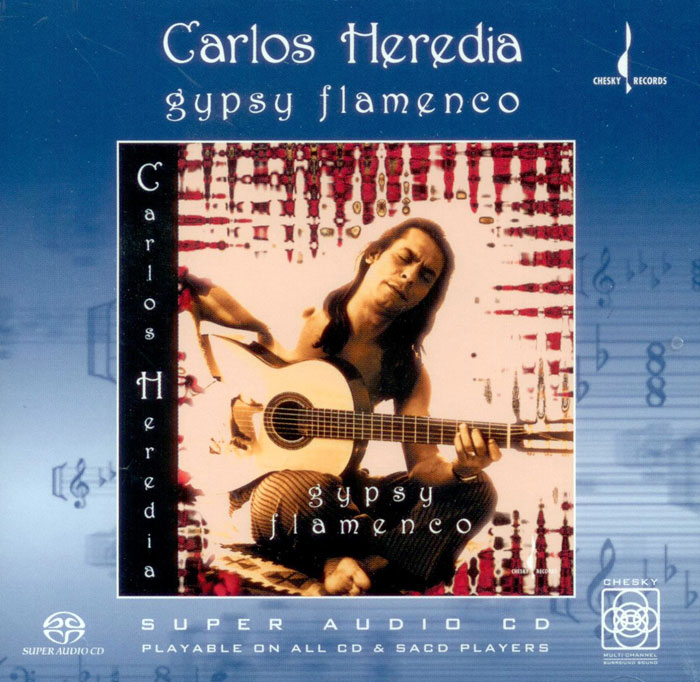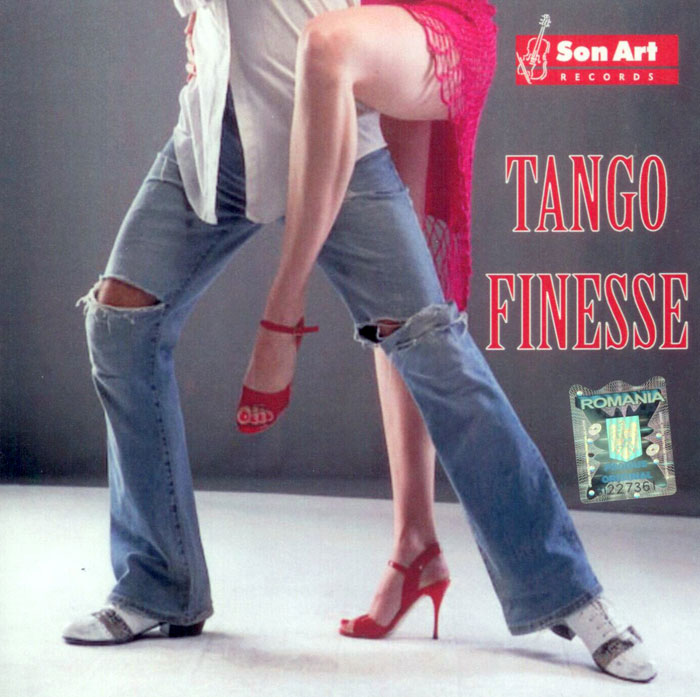Logowanie
Dziś nikt już tak genialnie nie jazzuje!
Bobby Hutcherson, Joe Sample
San Francisco
SHM-CD/SACD - NOWY FORMAT - DŻWIĘK TAK CZYSTY, JAK Z CZASU WIELKIEGO WYBUCHU!
Wayne Shorter, Freddie Hubbard, Herbie Hancock, Ron Carter, Elvin Jones
Speak no evil
UHQCD - dotknij Oryginału - MQA (Master Quality Authenticated)
Karnawał czas zacząć!
Music of Love - Hi-Fi Latin Rhythms
Samba : Music of Celebration
AUDIOPHILE 24BIT RECORDING AND MASTERING
CHOPIN, LISZT, DEBUSSY, DVORAK, Gerhard Oppitz
Dances romantiques - A fantastic Notturno
Wzorcowa jakość audiofilska z Clearaudio
Winylowy niezbędnik
ClearAudio
Double Matrix Professional - Sonic
najbardziej inteligentna i skuteczna pralka do płyt winylowych wszelkiego typu - całkowicie automatyczna
BEETHOVEN, Lotte Lehmann, , Wiener Philharmoniker
Fidelio - Complete 1944 performance and excerpts from Act One, 1936
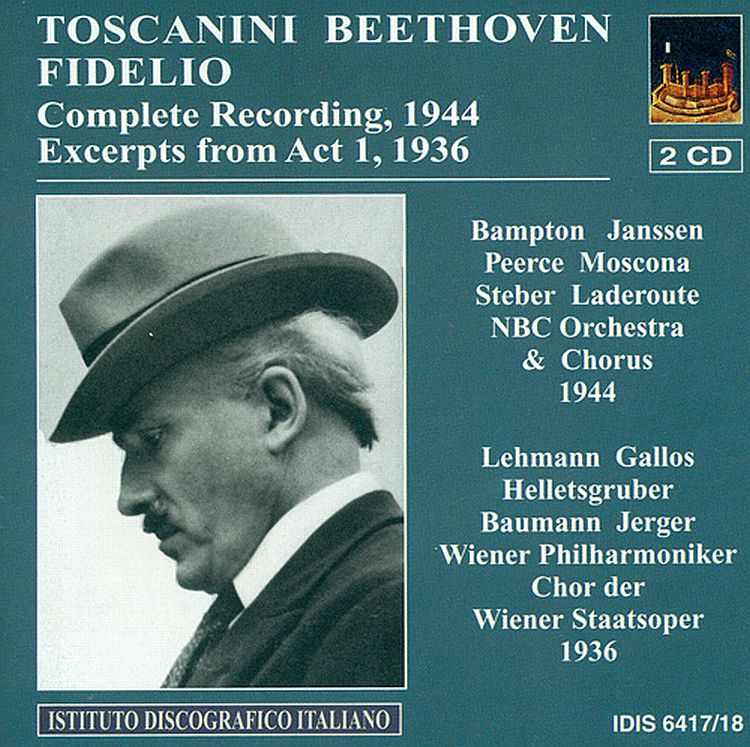
- CD 1
- Beethoven, Ludwig van
- Sonnleithner, Joseph / Treitschke, Georg Friedrich - lyricist(s)
- Fidelio, Op. 72 - 01:52:02
- 1. Overture - 06:28
- 2. Act I: Duet: Jetzt, Schatzchen, jetzt sind wir allein (Jaquino, Marzelline) - 04:22
- 3. Act I: Aria: O war' ich schon mit dir vereint (Marzelline) - 03:31
- 4. Act I: Quartet: Mir ist so wunderbar (Marzelline, Leonore, Rocco, Jaquino) - 04:14
- 5. Act I: Aria: Hat man nicht auch Gold beineben (Rocco) - 02:23
- 6. Act I: Terzetto: Gut Sohnchen, gut (Rocco, Leonore, Marzelline) - 05:46
- 7. Act I: March - 01:13
- 8. Act I: Aria and Chorus: Ha! welch ein Augenblick! (Pizarro, The Watch) - 02:48
- 9. Act I: Duet: Jetzt, Alter, jetzt hat es Eile! (Pizarro, Rocco) - 04:28
- 10. Act I: Recitative and Aria: Abscheulicher! wo eilst du hin? (Leonore) - 01:58
- 11. Act I: Dialogue: Marzelline! Marzelline!! (Jaquino, Marzelline, Rocco, Leonore) - 05:11
- 12. Act I: O welche Lust, in freier Luft den Atem leicht zu heben!, "Prison Chorus" - 05:43
- 13. Act I: Nun sprecht, wie ging's? (Leonore, Rocco, Marzelline, Jaquino, Pizarro) - 00:31
- 14. Act I: Noch heute! Noch heute! (Leonore) - 04:23
- 15. Act I: Ach Vater, Vater, eilt (Marzelline) - 02:10
- 16. Act I: Leb'wohl, du warmes Sonnenlicht (Prisoners, Marzelline, Leonore, Jaquino, Pizarro, Rocco) - 02:55
- 17. Act II: Introduction - 02:59
- 18. Act II: Aria: Gott! Welch ein Dunkel hier! (Florestan) - 01:29
- 19. Act II: In des Lebens Fruhlingstagen (Florestan) - 04:30
- 20. Act II: Melodrama and Duet: Wie kalt ist es (Leonore, Rocco) - 01:56
- 21. Act II: Nur hurtig fort, nur frisch gegraben (Rocco, Leonore) - 04:07
- 22. Act II: Terzetto: Euch werde Lohn in bessern Welten (Florestan, Rocco, Leonore) - 05:41
- CD 2
- Beethoven, Ludwig van
- Sonnleithner, Joseph / Treitschke, Georg Friedrich - lyricist(s)
- Fidelio, Op. 72 - 01:52:02
- 1. Act II: Quartet: Er sterbe! (Pizarro, Florestan, Leonore, Rocco) - 03:27
- 2. Act II: Es schlagt der Rache Stunde (Leonore) - 01:07
- 3. Act II: Duet: O namenlose Freude! (Leonore, Florestan) - 02:26
- 4. Act II: Dialogue: Alles ist bereit (Rocco, Florestan, Leonore) - 13:10
- 5. Act II: Finale: Heil! Heil sei dem Tag! (People and Prisoners) - 01:50
- 6. Act II: Des besten Konigs Wink und Wille (Don Fernando, People and Prisoners, Rocco, Pizarro, Leonore, Marzelline, Florestan) - 07:20
- 7. Act II: Wer ein holdes Weib errungen (People and Prisoners, Florestan, Leonore, Marzelline, Jaquino, Rocco, Don Fernando) - 03:56
- Beethoven, Ludwig van
- Sonnleithner, Joseph / Treitschke, Georg Friedrich - lyricist(s)
- Fidelio, Op. 72 (excerpts) - 46:44
- 8. Overture - 06:58
- 9. Act I: Duet: Jetzt, Schatzchen, jetzt sind wir allein (Jaquino, Marzelline) - 05:03
- 10. Act I: Aria: O war' ich schon mit dir vereint (Marzelline) - 04:41
- 11. Act I: Quartet: Mir ist so wunderbar (Marzelline, Leonore, Rocco, Jaquino) - 05:25
- 12. Act I: Aria: Hat man nicht auch Gold beineben (Rocco) - 05:30
- 13. Act I: Terzetto: Gut Sohnchen, gut (Rocco, Leonore, Marzelline) - 05:53
- 14. Act I: March - 03:39
- 15. Act I: Aria and Chorus: Ha! welch ein Augenblick! (Pizarro, The Watch) - 03:23
- 16. Act I: Duet: Jetzt, Alter, jetzt hat es Eile! (Pizarro, Rocco) - 06:12
- Arturo Toscanini - conductor
- NBC Symphony Orchestra - orchestra
- Wiener Philharmoniker - orchestra
- Lotte Lehmann - soprano
- BEETHOVEN
This double CD contains for the first time together the only two extant documents of Toscanini’s interpretation of Fidelio. Of the 1936 Salzburg performance only a few fragments have survived, which, nonetheless, are enough to give us an idea of Toscanini’s ambitious approach to Beethoven’s work and its challenging theatrical aspects. The 1944 studio version is characterised by a faster pace and is compelling for its tension and overall solidity. It remains one of the milestones in the interpretation of Beethoven’s only lyrical work.














